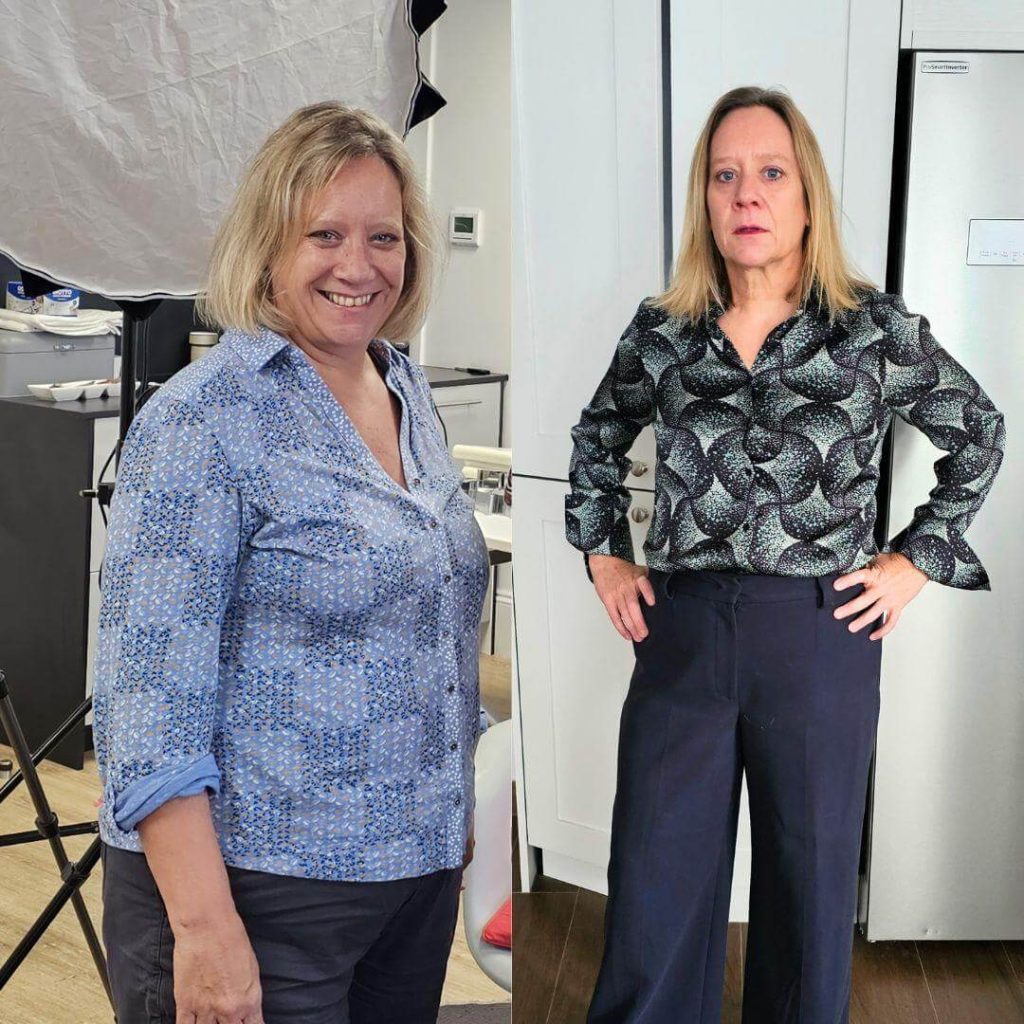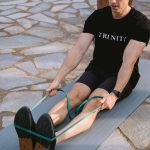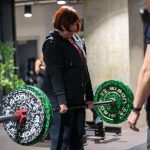Quick fix weight loss” is one of the most searched-for terms among women over 40 and it’s no wonder. When your body starts changing and the weight won’t budge, it’s tempting to try anything that promises fast results.
But the truth is, these shortcuts often make things worse, leaving you more frustrated, more tired, and still stuck. We see it all the time.
At Trinity, we help women transform their bodies and their lives through smart, science-backed strategies that are tailored to midlife. We understand the hormonal changes that make weight loss harder after 40, and we’ve helped over 7,000 women find solutions that actually work.
Our coaching programme focuses on restoring energy, reducing joint pain, shrinking your waistline, and helping you feel vibrant and confident again without cutting out everything you enjoy.
Whether it’s regaining your energy, fitting into your favourite clothes, feeling confident on holiday or keeping up with the family, our approach is designed to meet you exactly where you are and take you to where you want to be.
This article will show you exactly why quick fix weight loss doesn’t work for menopausal women and what you can do instead to finally see results.

Why It’s Harder to Lose Weight After 40
During perimenopause and menopause, hormonal shifts slow your metabolism, reduce muscle mass, and increase fat storage, especially around the belly.
Oestrogen, which once helped build and preserve muscle, begins to decline. Your stress hormone cortisol is also more reactive, meaning things like under-eating or over-exercising can backfire.
This hormonal landscape explains why you feel more tired, bloated, and frustrated. And when your usual strategies stop working, it’s easy to panic and jump to drastic solutions. But this is the exact moment you need a smarter, more sustainable approach.
Why Quick Fixes Don’t Work
Quick fix weight loss plans promise big results fast, but rarely deliver in a way that lasts. These approaches can wreak havoc on your metabolism, spike your stress hormones, and lead to weight regain which ends up leaving you more frustrated than when you started.
They often give the illusion of success: rapid weight loss on the scale, smaller clothes for a week or two, and a boost of motivation.
But what they don’t do is build lasting habits, protect your muscle mass, or support your hormonal health.
And for women navigating menopause, that’s exactly what’s needed to make any progress stick.
When your body is already under stress, the last thing it needs is more pressure from extreme diets, punishing exercise or deprivation.
These methods can lead to fatigue, mood swings, and even worsening menopausal symptoms.

“Before Trinity I weighed 89kg, I felt uncomfortably big and was always tired and lethargic. Trinity has been a re-education in terms of my understanding of food and nutrition and exercise. In my 20s and 30s I was fit and strong, going to the gym regularly. I was trying to approach dieting and fitness in the same way I used to. It did not work. I think most people just think: ‘stop eating and exercise more’ is the solution. It isn’t that simple. I am now 73kg, so in total I have lost 16kg since my pre-Trinity programme. The best thing about Trinity is the empowerment you get from being physically stronger and fitter. Both in body and mind!”
– Paula Parker (55), Trinity Client
The Most Common Fast Weight Loss Techniques
1. Very Low-Calorie Diets
Eating under 1200 calories a day puts your body into survival mode. This raises cortisol, stalls fat loss, damages metabolism, and leads to bingeing or burnout. You might lose a few pounds initially, but it comes with energy crashes, poor sleep, muscle loss, and eventual weight regain.
2. Low Carb and Ketogenic Diets
While you might see quick water weight loss, cutting carbs too low can leave you exhausted, irritable, and more likely to crave sugar later. Healthy carbs are essential for hormonal balance, sleep, and sustainable fat loss.
3. Weight Loss Injections
Drugs like Wegovy (semaglutide) or Zepbound (tirzepatide) are often marketed as miracle solutions. And while they can suppress appetite and cause significant short-term weight loss, they come with serious limitations.
They don’t address muscle loss, hormone imbalances or energy levels and the results typically vanish when you stop taking them.
Many women who try these drugs are already burned out from years of dieting. This adds another layer of dependency rather than offering real, long-term change.
4. Plant-Based or Vegan Diets
These diets are often seen as “clean” or healthy, but many menopausal women find themselves under-eating protein when they switch. Without enough protein, you lose muscle, feel constantly hungry, and see little to no change in your body shape.
What starts as a well-meaning shift toward plant-based eating often becomes another form of unintentional restriction, making it hard to stay consistent or energised.
5. Fasting
Intermittent fasting promises simplicity, but for many women in midlife, it adds more stress to an already taxed system. Going long hours without food can raise cortisol, which encourages fat storage (especially around your middle). It also leads to irritability, energy crashes and poor food choices later in the day.
If you’re also juggling work, caring for others, and managing sleep issues, fasting can do more harm than good.
6. Juice or Shake Diets
These low-calorie, low-protein diets are usually designed to create quick weight loss through severe restriction. But they don’t support your muscle mass, your hormones or your long-term health. Most women feel weak, constantly hungry, and completely reliant on products instead of real food.
7. Exercise-Only Approaches
Many women believe they just need to “work harder” in the gym to lose weight. But exercise without proper nutrition is like trying to drive a car on an empty tank. Excessive cardio can also raise cortisol, stall fat loss, and increase injury risk and especially during menopause.
If you’re constantly tired, not seeing results, or struggling to recover, it’s likely that your training isn’t aligned with your body’s needs.
8. Just Trying to “Eat Healthier”
This well-meaning approach often fails because it lacks strategy. Swapping chocolate for granola and adding more salad won’t help if you’re still missing key nutrients like protein, fibre or adequate calories. And if you’re unsure whether you’re eating too much or too little, you’ll keep spinning your wheels.

” I was a size 22 -24. I had spent many years doing various diets of varying degrees if severity. Weight watchers, slimming world, lighter life, slim fast, some weird Australian diet among many many more. I was depressed, on anti depressants, type 2 diabetic and more miserable than I can possibly describe. Since Trinity everything has changed. This program has literally changed my life. I have lost 16kg and 21 inches all over, I could not afford to sign up again last year but I borrowed to do so because this is the best thing that has ever happened to me. I look younger and I feel so much better. I can walk up stairs, I don’t avoid clothes or shops from sheer humiliation and I have a new zest for life.”
– Rebecca Vears (51), Trinity Client
What Should You Do Instead?
The good news? You can lose weight in your 40s, 50s and beyond. The key is to stop chasing quick fixes and start working with your body, not against it.
1. Start Strength Training
Low-impact strength training (LIST) is the most effective form of exercise during menopause. It builds muscle, boosts metabolism, reduces joint pain and improves mood. We recommend 3 sessions per week of slow, controlled strength workouts tailored to your level.
How to incorporate this: Follow a guided programme from a coach who understands menopause. Start with short, home-based workouts and gradually build up your strength and confidence.
2. Eat Hormonally Balanced Meals
This means hitting your Key 3: the right number of calories, enough protein, and plenty of fibre. Not too much, not too little, you need to get it just right for you. This stabilises blood sugar, reduces cravings and supports lean muscle.
How to incorporate this: Use simple food tracking tools to monitor your intake. Plan your meals around protein-rich foods, add fibre from veggies and wholegrains, and adjust your portions based on your hunger and goals.
3. Follow the WADS Approach
You don’t need to ban foods, but cutting back on wheat, alcohol, dairy and sugar can make a big difference. These foods often disrupt hormones, cause bloating, and increase cravings.
How to incorporate this: Pick 1–2 of these to focus on reducing each week. Swap wheat pasta for lentil pasta, have alcohol-free weekends, or find dairy alternatives that suit your digestion.
4. Prioritise Protein
Menopausal women need more protein than younger women to build and maintain muscle. Aim for around 30g per meal to feel full, support your metabolism and recover from workouts.
How to incorporate this: Build each meal around a protein source. Add foods such as eggs, chicken, tofu or Greek yoghurt and consider adding a protein shake if you’re falling short.
5. Start Walking More
Low-stress movement like walking helps burn fat without raising cortisol. Plus, it improves mood, energy, and digestion. You don’t need to spend hours each day walking to lose weight, just gradually increase how much you’re moving. Aim for upwards of 5000 steps each day to make sure you’re staying active.
How to incorporate this: Break it into smaller chunks by choosing to walk 10 minutes after each meal, park further away, or take a walking meeting.
6. Sleep More, Stress Less
High cortisol blocks fat loss and increases cravings. Prioritising sleep, managing stress, and carving out “me time” will do more for your waistline than another restrictive diet ever could.
How to incorporate this: Set a consistent bedtime, reduce screen time before sleep, and try stress-reducing activities like journaling, stretching, or spending time in nature.
Watch How Isabel Transformed Her Mind and Body
How Trinity Can Help You
At Trinity, we’ve helped over 7,000 women lose weight, feel stronger and regain confidence after 40. Our approach isn’t a diet or a quick fix. It’s a full lifestyle shift based on your body, hormones, and goals.
Our 97% success rate speaks for itself. We don’t offer magic pills or gimmicks. Instead, you’ll work 1:1 with a coach who understands the unique challenges of menopause. Together, we’ll create a custom plan that includes:
- Strength training routines that fit your lifestyle
- Nutrition tailored to your hormonal needs
- Guidance on portion sizes, food tracking and flexible eating
- Accountability, support, and expert education so you can make lasting changes
Unlike expensive drugs that only work while you’re taking them, Trinity is about creating habits you can keep for life. You’ll not only drop 1-2 dress sizes, but you’ll feel more vibrant, energetic and in control of your body.




